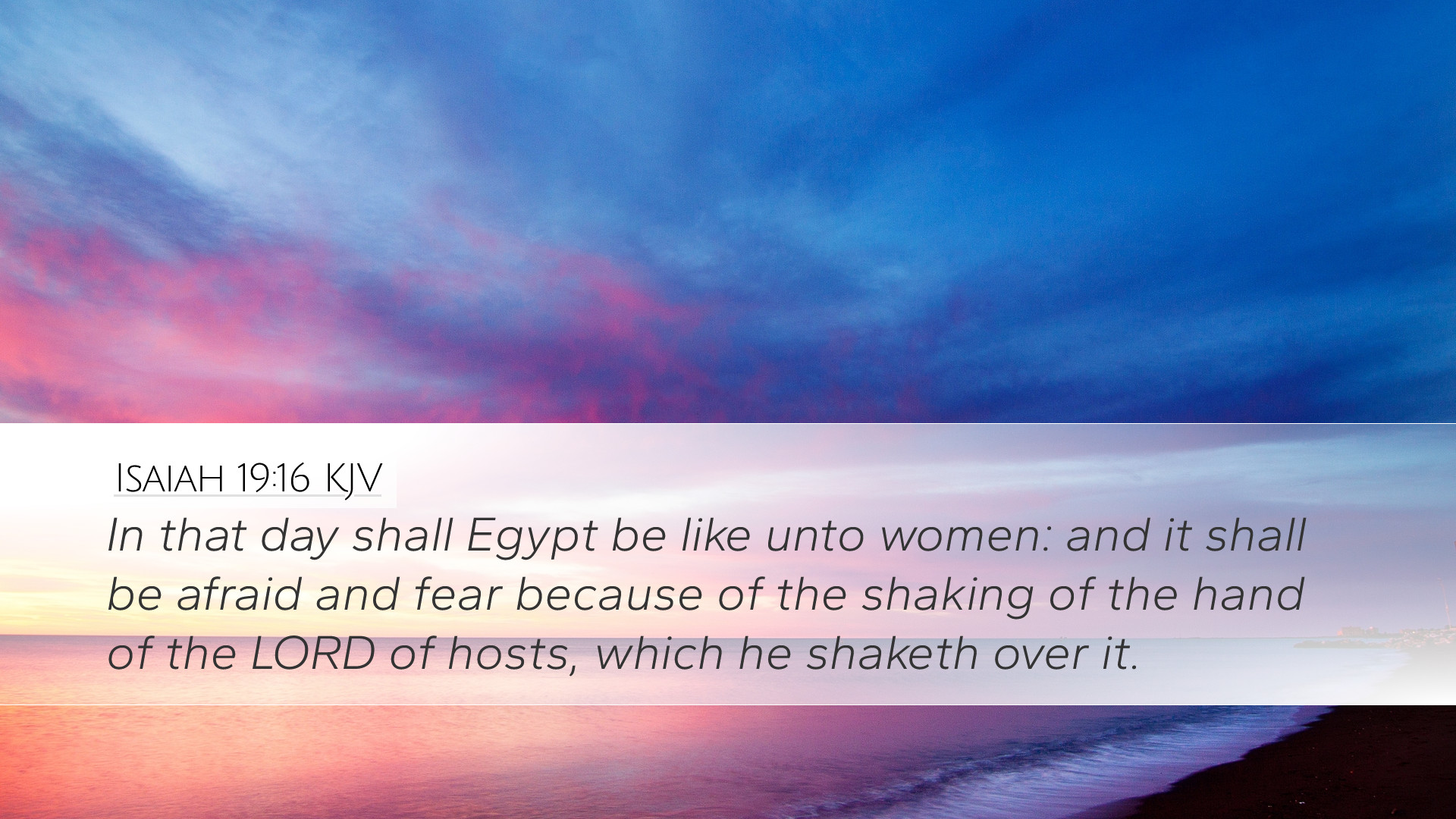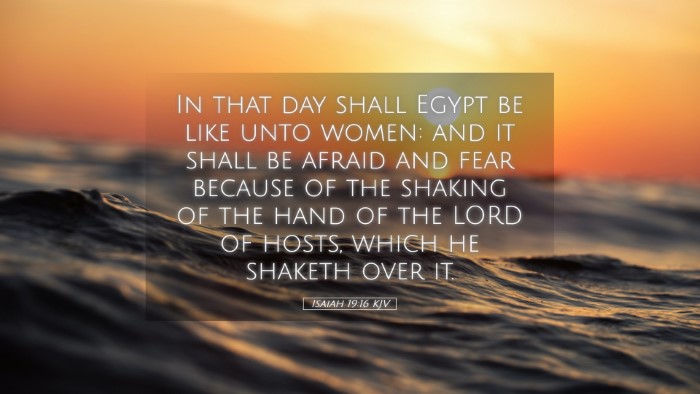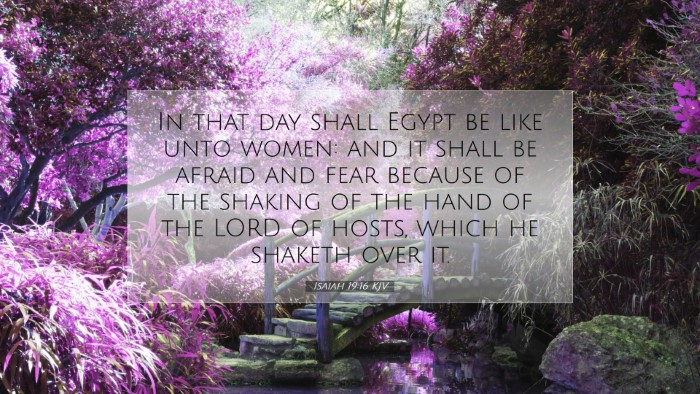Commentary on Isaiah 19:16
Verse Text: "In that day, the Egyptians will become like women, and they will tremble with fear because of the shaking hand of the Lord of hosts, which He is shaking over them."
Introduction
This verse from Isaiah 19:16 presents profound imagery and powerful themes concerning the judgment and subsequent liberation of Egypt. Public domain commentaries by Matthew Henry, Albert Barnes, and Adam Clarke provide valuable insights that are crucial for pastors, students, theologians, and Bible scholars in understanding the prophetic significance and theological implications of this passage.
Contextual Background
To fully grasp Isaiah 19:16, it is essential to consider the historical and cultural context of Egypt during the prophet Isaiah's time. Egypt was a dominant power in the ancient world and was often seen as a symbol of oppression and idolatry within the biblical narrative. Isaiah's prophecy not only addresses Egypt but also foreshadows the culminating end of human arrogance and a return to reliance upon the Lord.
Prophetic Nature of the Verse
This verse lies within a section of Isaiah that details the coming judgment against Egypt. It is crucial to recognize the dual nature of prophecy, encompassing both immediate and eschatological fulfillment. In New Testament fulfillment, Egypt serves as a warning to those who defy God’s order.
Theological Insights
1. The Imagery of Fear: The text states that the Egyptians will become like women, indicating a shift from strength to vulnerability. Commentators like Matthew Henry suggest that this metaphor is indicative of severe fear and helplessness, contrasting their former might as a powerful nation.
2. Divine Sovereignty: The "shaking hand of the Lord" indicates God’s direct involvement in human history. Albert Barnes explains that God's power is not merely passive; it is active and capable of instilling fear in the hearts of nations. This divine intervention is both a form of judgment and a means of bringing nations to repentance.
Response to Fear
The reaction of the Egyptians serves as a reminder of how humanity often responds to divine judgment. Fear can lead to either despair or a seeking after God, a theme echoed throughout scripture. Adam Clarke emphasizes the transformational aspect of fear when it turns toward reverence and acknowledgment of God’s supremacy.
Cultural Implications
This passage speaks to the vulnerability that arises from pride. As Egypt, representative of human strength, faces God’s shaking hand, it raises questions concerning modern nations’ reliance on their own strength and wisdom, calling into consideration how they might respond when confronted by the Almighty.
Applications for Today
1. Recognizing Human Limitations
In light of Isaiah 19:16, modern readers are prompted to reflect on their own lives and communities. Just as Egypt fell before the Lord’s hand, societies today need to confront their limitations and recognize their need for God’s guidance.
2. Embracing Vulnerability Before God
Instead of resisting the fear introduced by God’s word, believers are encouraged to embrace vulnerability as a starting point for spiritual growth and realignment with His will. Fear can either paralyze or catalyze transformation; the choice lies with the individual and their response to divine shaking.
3. The Call to Repentance
The prophetic nature of Isaiah’s message is a call to repentance. Just as Egypt faced judgment, today’s believers are reminded that turning towards God is paramount in avoiding the pitfalls of spiritual distraction and idolatry.
Conclusion
Isaiah 19:16 serves as a poignant reminder of God’s active role in the affairs of nations and individuals alike. It compels a reflection on humanity's tendency to stand in opposition to divine authority and highlights the transformative power of acknowledging God’s sovereignty in fear and reverence. The insights from Matthew Henry, Albert Barnes, and Adam Clarke enrich our understanding of this verse, providing a multifaceted view of divine judgment, the nature of fear, and the call towards repentance.
This prophetic passage challenges both the past and present, encouraging contemporary followers of Christ to live in humility and dependence upon God, acknowledging that it is only through divine empowerment that they can resist the temptations of pride and the allure of self-sufficiency.


